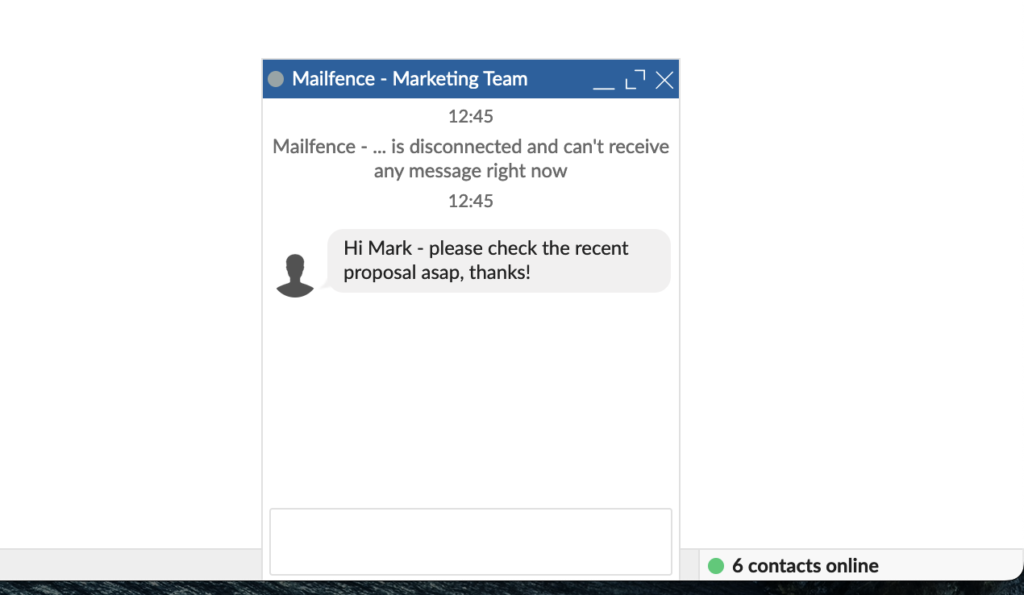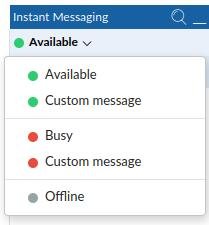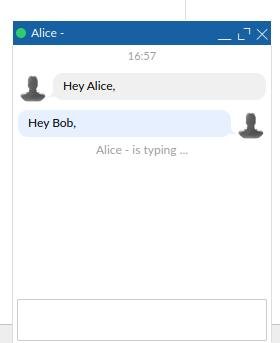With Mailfence Chat, Mailfence strives to make the Internet a safer place.
That is why we didn’t stop at just a secure and private email solution. Instead, we developed a complete suite of tools which includes:
- Emails
- Calendar and Polls
- Documents
- Contacts
- Groups
- Chat
This guide will give you an introduction to Mailfence Chat and its different functionalities.
What is the Mailfence Chat?
The Mailfence Chat is an integrated Instant Messaging tool that allows you to have textual chats with other Mailfence users.

With Mailfence Chat you can:
- See online presence of your group members
- Launch textual chats with each of these group members
How can I chat with my group contacts?
You can only use the Mailfence Chat with members of your groups.
Like many instant messaging services, our chat system lets you see which group members are online. You can check this by clicking on the little green dot at the right bottom of the screen to open the instant messaging panel.

A green dot signals any contact that is online.

To access this secure chat, just click on the group member’s tab you want to talk to. A new window will open next to the list. Use it to type your message, click on Enter, and there you go! Your contact can now reply instantly.

Collaborate safely with the Mailfence Chat
This instant messaging feature is brilliant for collaborative purposes and teamwork.
It’s much quicker than traditional emails to share comments and make progress on any project.
In addition, you can open as many windows as you need and interact in real-time with all your team members.
Also, it’s possible to multitask while chatting. You can edit a document, write an email, or schedule an appointment on the calendar while chatting. Another key point is that the whole team can collaborate on the same document in the Mailfence Documents tool while chatting together.
The chat is far more effective for simple messages than email. It will help you to cut the noise in your email box and reduce the number of emails you’ve got to skim through every day.
Last but not least, with our secure chat, we protect your privacy. Mailfence does not keep the history or your chats, meaning we preserve the confidentiality of your chat.
Compatibility with XMPP
The Mailfence Chat is based on the Jabber/XMPP protocol. This protocol, named Jabber at its creation, then renamed XMPP (Extensible Messaging and Presence Protocol), has been created for instant messaging. It’s an open-source protocol, meaning everyone can use it.
The Mailfence Chat tool is based on an ejabberd server to power our XMPP network. Ejabberd is open-source and has been praised for its scalability and clustering features. Our chatting system is thus secured, because it remains in the same protected Mailfence environment, without the interference or control of any other organization.
It works a little bit like emails: everyone (every organization) can set up/use their own XMPP server. No third party needs to be involved. This makes it a very popular option, which many organizations around the world use.
Access through XMPP compatible chat clients
In line with our philosophy of openness and respect for standards, Mailfence chat is accessible via third party clients. You will find more info on potential third party apps and configuration in this dedicated article.
Didn’t find what you were looking for? Check our Documentation for a comprehensive guide on the Mailfence Chat.